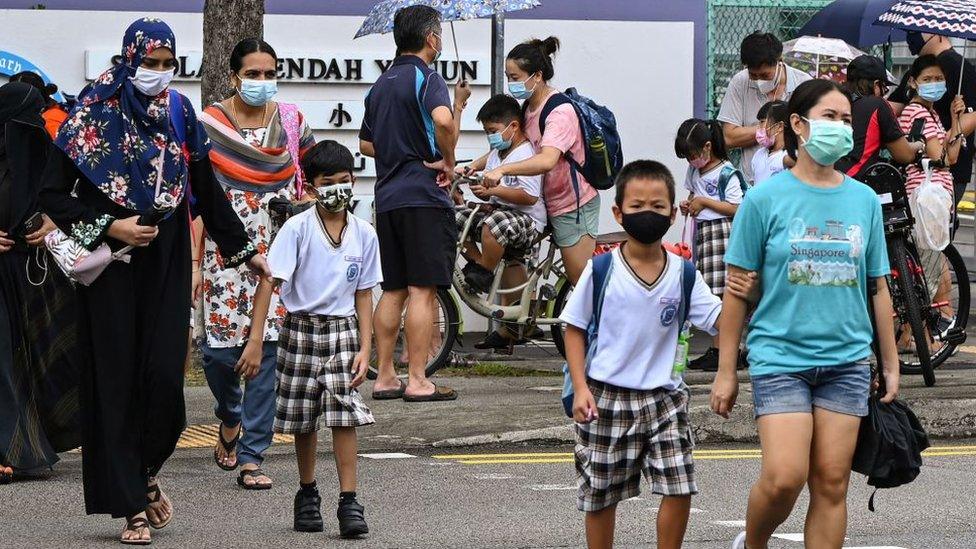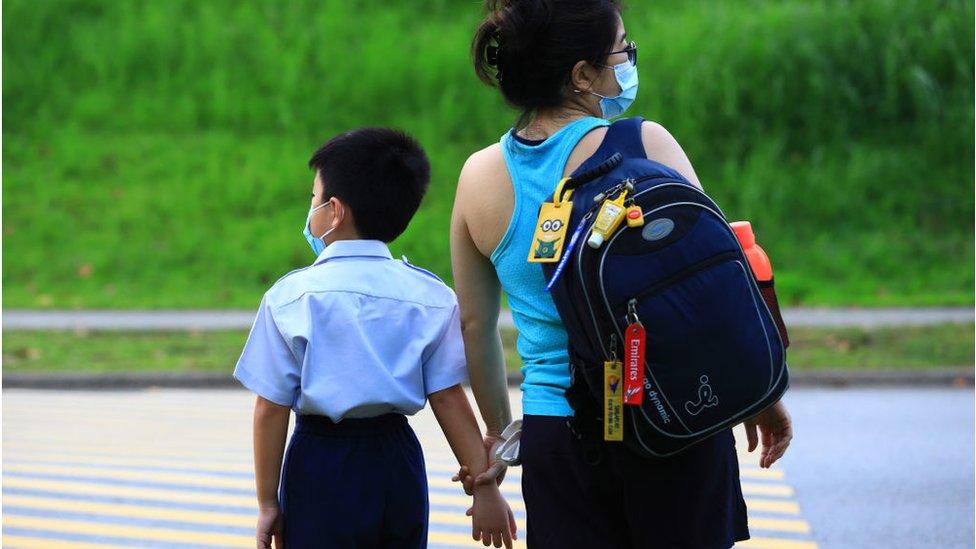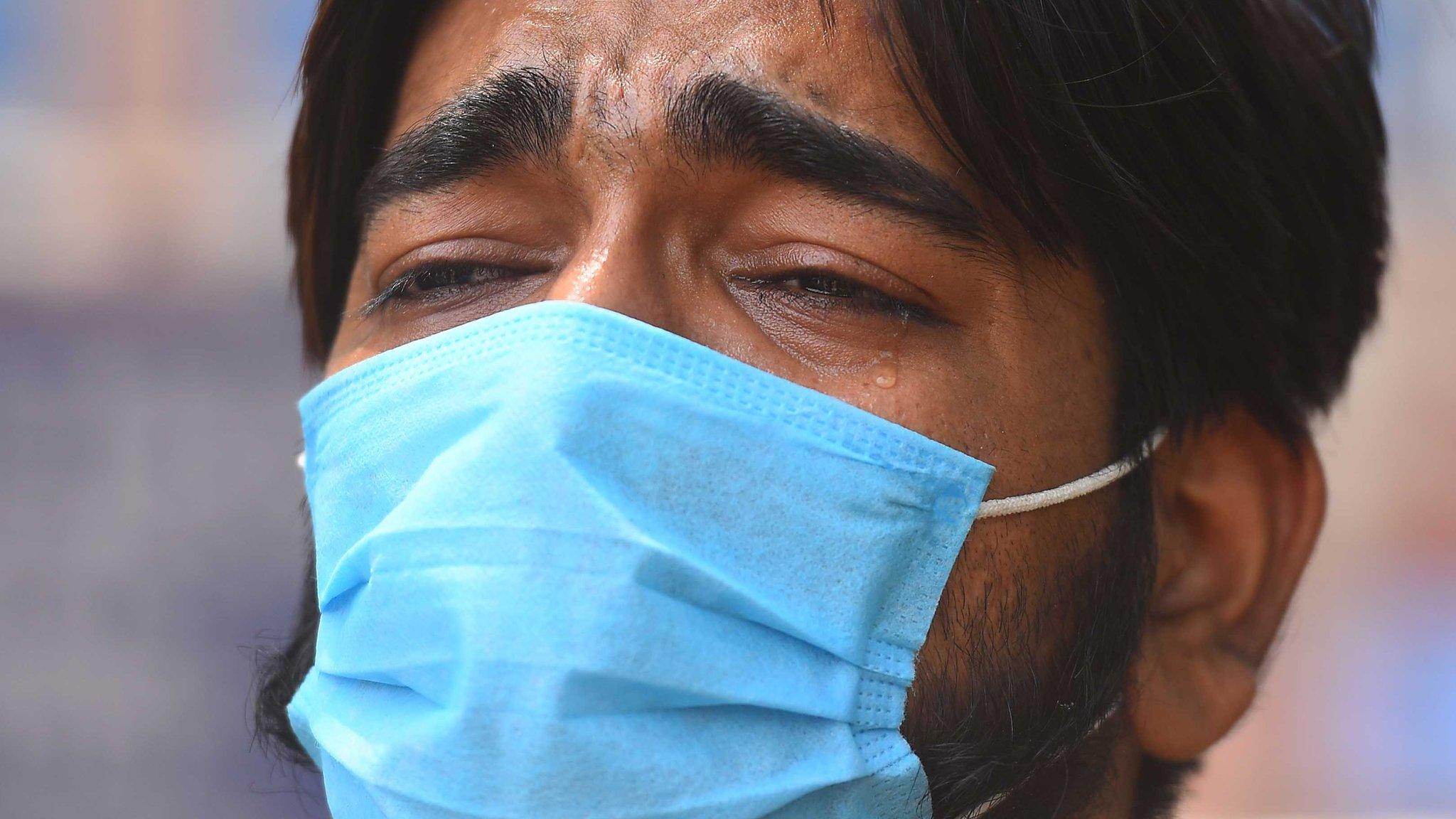Singapore says 'no truth' to Kejriwal's new variant claims
- Published

Singapore has been battling a recent uptick in cases
Singapore's government has said there is "no truth" to an assertion by Delhi's chief minister that a new variant of the coronavirus has been detected in the city state.
Delhi's chief minister Arvind Kejriwal had called for a halt to flights, saying a new "Singapore strain" was "extremely dangerous for children".
He added that it could result in a third wave of the infection in India.
Singapore's ministry of health has reacted strongly to the claims.
"The strain that is prevalent in many of the Covid-19 cases in recent weeks is the B.1.617.2 variant, which originated in India. Phylogenetic testing has shown this B.1.617.2 variant to be associated with several clusters in Singapore," Singapore's Ministry of Health said in a statement.
"There is no 'Singapore variant'."
Singapore's Foreign Minister Vivian Balakrishnan also tweeted, saying "politicians should stick to facts".
India's foreign minister S Jaishankar responded on Wednesday, saying Mr Kejriwal did not speak "for India".
Singapore has been battling a recent uptick in cases after months of no community spread, but experts like Gavin Smith, a viral evolutionary biologist at Duke-NUS Medical School in Singapore, told the BBC that he had not seen anything that indicates a new variant.
"It's not impossible but unlikely because Singapore doesn't have long chains of transmission or large community outbreaks," he said.
Experts in India agree that it is highly unlikely that a new strain of the virus has been detected in Singapore.

Singapore says no new variant has been found in the country
"It needs to be investigated through genome sequencing. But I doubt, the kind of transmission in Singapore, which is just a few cases, that is not enough to generate a new variant. The virus needs to multiply millions of times before it can become a new variant. It is unlikely to be a Singapore variant because new strains require sustained transmission," Dr Chandrakanth Lahariya, epidemiologist in public policy and health systems in India, told the BBC.
Like all viruses, the coronavirus keeps changing in small ways as it passes from one person to another.
The vast majority of these mutations are inconsequential and don't alter the way the virus behaves.
But some mutations trigger changes in the spike protein that the virus uses to latch on to and enter human cells - these variants could potentially be more infectious, cause more severe disease or evade vaccines - the highly infectious B.1.6172 first found in India being one of them.
Singapore's new outbreak has been linked to the variant which has now spread to at least 44 countries around the world.
The island nation has a comprehensive testing and contact tracing system. It declares which variant is found in positive cases most of the time. , external
Related topics
- Published7 June 2021

- Published18 May 2021

- Published19 May 2021
